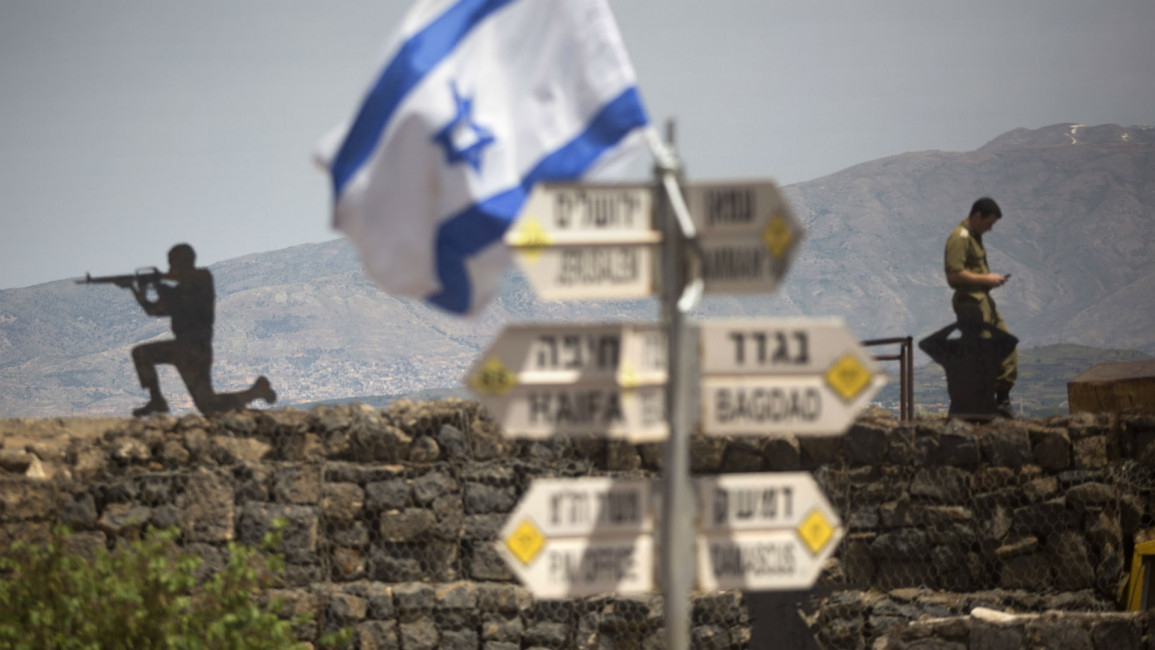US to recognise Israeli sovereignty over occupied Golan Heights 'within months'
The United States could recognise Israel's 51-year-old occupation of the Syrian Golan Heights within months, an Israeli minister said on Wednesday.
Intelligence minister Israel Katz told Reuters that US recognition of Israel's sovereignty over the occupied Syrian territory is "topping the agenda" in bilateral diplomatic talks with the US.
Israeli Prime Minister Binyamin Netanyahu raised the issued in his first White House meeting with US President Donald Trump in February 2017.
The topic is now under discussion at various levels of the US administration and Congress, Katz said.
"I reckon there is great ripeness and a high probability this will happen," he said. Asked if such a decision could be made this year, he added: "Yes, give or take a few months."
Such a move follows Trump's recognition of Jerusalem as Israel's capital and the inauguration of a new embassy there this month.
It also comes shortly after Trump withdrew the US from the landmark 2015 nuclear deal with Iran.
Twitter Post
|
"This is the perfect time to make such a move. The most painful response you can give the Iranians is to recognise Israel's Golan sovereignty - with an American statement, a presidential proclamation, enshrined (in law)," Katz told Reuters.
"You want to destroy (US-ally Israel), to generate attacks (against it)? Look, you got exactly the opposite," Katz said of Iran.
There was no immediate comment from the White House on Katz's remarks.
Israel captured the Golan Heights in the 1967 Arab-Israeli war and annexed it in 1981 in a move not recognised by the international community.
Some 20,000 Israeli settlers live in more than 30 settlements in the occupied territory. Around 20,000 Syrians, mostly Druze, also live in the area
In recent years, Israel has argued that the civil war in Syria justifies its control over the strategic plateau as a bulwark against Iranian expansion in the region.



![Widespread famine is imminent in Gaza [Getty Images]](/sites/default/files/styles/image_212x120/public/2024-03/GettyImages-2015647000.jpg?h=199d8c1f&itok=VUMjNSXn)